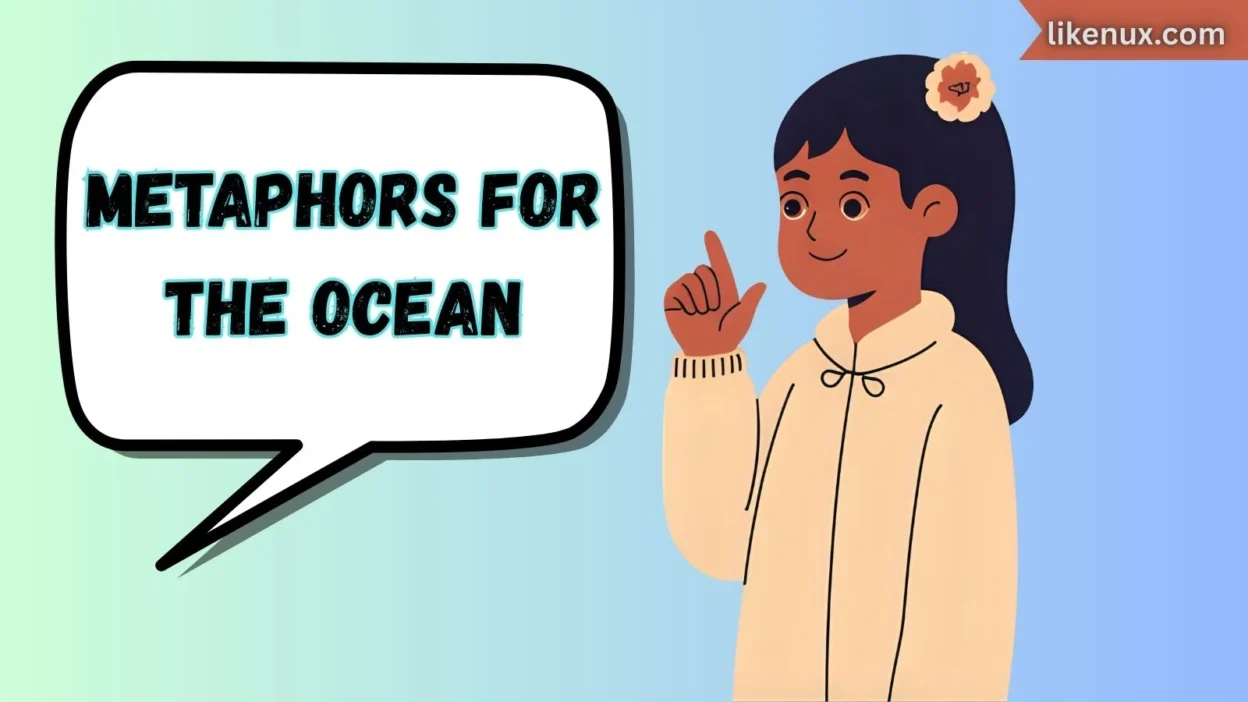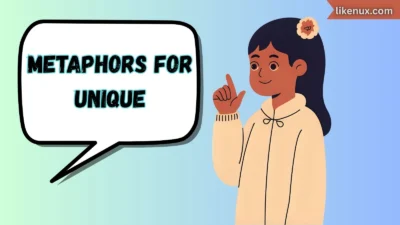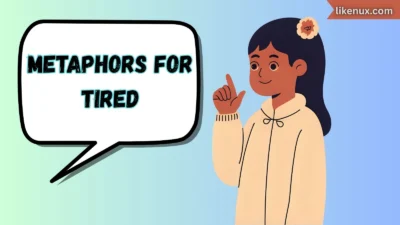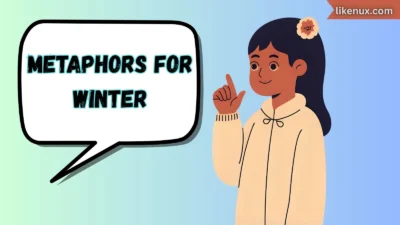The ocean is one of the most profound symbols of mystery, beauty, and boundless depth. It has always inspired poets, dreamers, and wanderers to express their deepest emotions. When words fail to capture the magnitude of feelings, metaphors for the ocean offer a powerful way to communicate. In this article, we’ll explore 25 unique metaphors for the ocean, helping you express yourself with warmth, care, and authenticity.
Whether you’re writing a letter, giving a speech, or simply reflecting on life, these metaphors will give your words emotional resonance.
1. The Ocean as a Mirror of the Soul
Meaning: Reflects inner emotions and states of mind.
In a Sentence: “Her heart was as vast and unpredictable as the ocean—a mirror of the soul.”
Best Use: Perfect for describing deep emotional experiences.
Other Ways to Say: “Reflection of our inner world,” “emotional landscape.”
Read More: Metaphors for Work
2. The Ocean as Life’s Endless Journey
Meaning: Represents the ongoing flow of existence.
In a Sentence: “We sail across life’s ocean, never knowing where the waves will take us.”
Best Use: Ideal for motivational or reflective writing.
Other Ways to Say: “River of life,” “boundless voyage.”
3. The Ocean as a Keeper of Secrets
Meaning: Holds mysteries hidden from human understanding.
In a Sentence: “The ocean is a keeper of secrets, whispering stories beneath its waves.”
Best Use: Great for adding intrigue or wonder.
Other Ways to Say: “Silent guardian,” “mystery of the deep.”
4. The Ocean as Mother Earth’s Heartbeat
Meaning: Symbolizes the pulse of the planet.
In a Sentence: “Each crashing wave felt like Mother Earth’s heartbeat.”
Best Use: Perfect for environmental or nature-inspired writing.
Other Ways to Say: “Pulse of nature,” “rhythm of life.”
5. The Ocean as a Teacher of Patience
Meaning: Demonstrates endurance and timelessness.
In a Sentence: “The ocean teaches patience; it carves cliffs with gentle persistence.”
Best Use: Excellent for lessons in resilience.
Other Ways to Say: “Master of time,” “gentle sculptor.”
6. The Ocean as a Lover’s Embrace
Meaning: Represents love’s depth and passion.
In a Sentence: “His love wrapped around me like the warm embrace of the ocean tide.”
Best Use: Romantic writing.
Other Ways to Say: “Tidal affection,” “sea of love.”
7. The Ocean as a Gateway to Dreams
Meaning: Suggests limitless imagination and hope.
In a Sentence: “The horizon over the ocean felt like a gateway to dreams yet to come.”
Best Use: Inspirational or poetic writing.
Other Ways to Say: “Portal of possibility,” “dreamscape horizon.”
8. The Ocean as a Test of Courage
Meaning: Represents challenges and bravery.
In a Sentence: “Every storm on the ocean tests the courage of those who sail it.”
Best Use: Motivational or leadership contexts.
Other Ways to Say: “Trial of bravery,” “arena of strength.”
9. The Ocean as a Cradle of Life
Meaning: Origin of all living things.
In a Sentence: “The ocean, the cradle of life, nurtures our very existence.”
Best Use: Scientific or philosophical writing.
Other Ways to Say: “Mother of creation,” “womb of Earth.”
10. The Ocean as a Symphony of Nature
Meaning: Represents harmony and natural music.
In a Sentence: “The ocean played its eternal symphony under the moonlight.”
Best Use: Nature appreciation pieces.
Other Ways to Say: “Melody of waves,” “harmony of water.”
11. The Ocean as a Timeless Storyteller
Meaning: Symbolizes history and wisdom.
In a Sentence: “The ocean is a timeless storyteller, etching tales into its tides.”
Best Use: Literary or reflective writing.
Other Ways to Say: “Keeper of legends,” “narrator of ages.”
12. The Ocean as a Dance of Freedom
Meaning: Represents liberation and fluidity.
In a Sentence: “The waves danced like freedom itself upon the shore.”
Best Use: For themes of independence and joy.
Other Ways to Say: “Waltz of liberty,” “flow of release.”
13. The Ocean as a Battlefield of Storms
Meaning: Depicts struggle and conflict.
In a Sentence: “The ocean roared—a battlefield of storms and survival.”
Best Use: Describing turmoil and resilience.
Other Ways to Say: “Arena of struggle,” “tempest ground.”
14. The Ocean as a Blanket of Serenity
Meaning: Represents calm and comfort.
In a Sentence: “At dawn, the ocean was a blanket of serenity.”
Best Use: Meditative or peaceful writing.
Other Ways to Say: “Veil of peace,” “mantle of calm.”
15. The Ocean as a Sculptor of Landscapes
Meaning: Shows transformative power.
In a Sentence: “The ocean is a sculptor, shaping shores over centuries.”
Best Use: Environmental or reflective contexts.
Other Ways to Say: “Architect of coasts,” “artist of time.”
16. The Ocean as a Bridge Between Worlds
Meaning: Connects distant places and people.
In a Sentence: “The ocean is a bridge between worlds, uniting continents.”
Best Use: Cultural or travel writing.
Other Ways to Say: “Pathway of unity,” “link of lands.”
17. The Ocean as a Canvas of Change
Meaning: Represents transformation and cycles.
In a Sentence: “The ocean’s tides painted a canvas of change.”
Best Use: Writing about personal growth.
Other Ways to Say: “Palette of transformation,” “ever-shifting masterpiece.”
18. The Ocean as a Companion of Solitude
Meaning: Provides solace and quiet company.
In a Sentence: “In my loneliness, the ocean was my silent companion.”
Best Use: Personal reflection.
Other Ways to Say: “Friend of silence,” “ally of solitude.”
19. The Ocean as a Stage for Sun and Moon
Meaning: A setting for cosmic beauty.
In a Sentence: “The ocean’s horizon was the stage for the sun’s grand exit.”
Best Use: Romantic or scenic description.
Other Ways to Say: “Theater of light,” “cosmic arena.”
20. The Ocean as a Keeper of Balance
Meaning: Maintains planetary equilibrium.
In a Sentence: “The ocean, keeper of balance, sustains life’s fragile thread.”
Best Use: Environmental awareness writing.
Other Ways to Say: “Guardian of harmony,” “custodian of life.”
21. The Ocean as a Veil of Mystery
Meaning: Represents the unknown.
In a Sentence: “Beneath its surface, the ocean hides a veil of mystery.”
Best Use: Adding intrigue or suspense.
Other Ways to Say: “Shroud of enigma,” “cloak of secrets.”
22. The Ocean as a Clock of Eternity
Meaning: Symbolizes endless time.
In a Sentence: “The ocean ticks to the rhythm of eternity.”
Best Use: Philosophical or spiritual writing.
Other Ways to Say: “Chronometer of ages,” “time’s tide.”
23. The Ocean as a Garden of the Unknown
Meaning: Represents unexplored potential.
In a Sentence: “The ocean blooms with life in its garden of the unknown.”
Best Use: Scientific curiosity.
Other Ways to Say: “Hidden paradise,” “field of wonders.”
24. The Ocean as a Healer of the Spirit
Meaning: Provides emotional renewal.
In a Sentence: “A walk by the ocean healed my weary spirit.”
Best Use: Wellness and mental health contexts.
Other Ways to Say: “Soul’s remedy,” “balm of waves.”
25. The Ocean as a Testament to Wonder
Meaning: Stands as proof of Earth’s marvels.
In a Sentence: “The ocean is a testament to wonder, reminding us of nature’s glory.”
Best Use: Concluding or awe-inspiring moments.
Other Ways to Say: “Proof of beauty,” “evidence of magnificence.”
FAQs
1. Why do we use metaphors for the ocean?
Metaphors bring emotional depth and make descriptions more relatable and powerful.
2. How can I use these ocean metaphors in daily life?
Use them in writing, speeches, or personal reflections to convey profound meaning.
3. What makes the ocean such a powerful metaphor?
Its vastness, mystery, and life-giving nature make it a universal symbol.
4. Are these metaphors suitable for poetry?
Absolutely, they add vivid imagery and emotional weight to poems.
5. Can these metaphors be used for mental health expressions?
Yes, many ocean metaphors beautifully capture emotions like healing, calmness, or struggle.
Conclusion
The ocean is more than just water; it’s a symbol of life, love, struggle, and beauty. Through these 25 metaphors, you can transform ordinary language into meaningful, heartfelt expressions. Whether you’re writing for yourself or reaching out to others, let the ocean’s timeless presence inspire your words. After all, language, like the ocean, has no limits—only endless horizons.

David Robert is a passionate innovator driven by creativity, vision, and purpose. He turns bold ideas into impactful realities through focus, leadership, and dedication.



